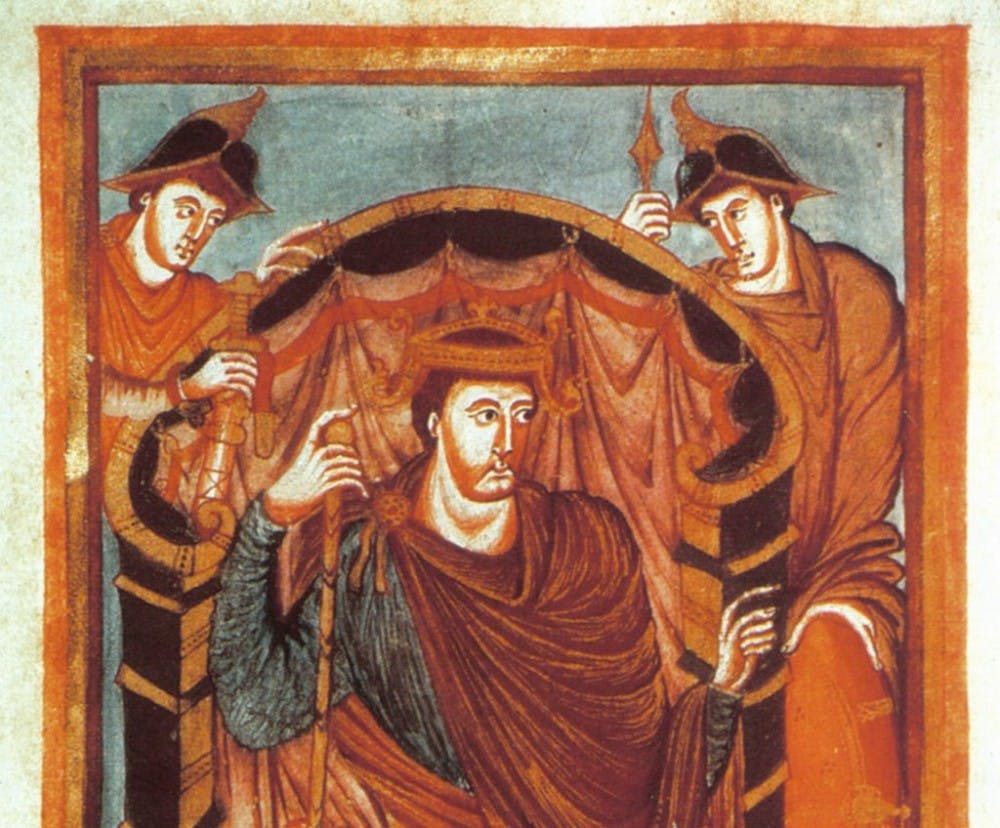This is a column by an easily distracted, Wikipedia-loving college student who can’t identify run-on sentences and isn’t even majoring in history. So be prepared for a lot of guessing and a strong prejudice for the absurd, weird and, above all, irrelevant. Here we go.
Why did WWI happen?
If you’ve taken any sort of survey class in political science or history, you might have touched upon the exhaustively studied question of “Why did WWI happen?” There have been many explanations and analyses for this question. Here are a couple notable ones.
1. WWI happened because there was an unsteady alliance structure in Europe.
2. WWI happened because the Habsburgs of Austria-Hungary were being pricks to the Slavs in Southeast Europe and the Slavs got salty.
3. WWI happened because the German Chief of Staff Herman von Moltke the Younger had major masculinity problems and was overcompensating.
Well sure, all those are likely theories, but here is the definitive be-all and end-all answer to this eternal question from a self-described amateur historian.
So if you recall from 9th grade world history, Charlemagne was crowned as the first Holy Roman Emperor in 800 CE (~1100 years earlier than WWI), blah, blah, blah, popularized brie cheese from an unknown French monastery, blah, blah and unified the territories that are essentially modern day France and Germany.
Then he dies in 814 CE and his son, Louis the Pious, takes over and does some stuff, has some kids and then his wife dies, so then he remarries and has another son. In retrospect, he probably should have had a discussion with his wife about birth control. Primogeniture wasn’t really a thing at the time, so that meant all of his land holdings were to be divided equally among his male children (gender equality also wasn’t really a thing), and the birth of another son meant that the slices of the pie for the previous sons were getting smaller.
And when people don’t get the pie they think they rightfully deserve, they throw a tantrum and go to war — three in this case. From my skimming of the Wikipedia page on Louis the Pious, the wars were a complicated, Game-of-Thrones-esque mess of back-stabbings and sex scandals. So basically just a lot of stuff happened with people whose names I’ve already forgotten, but Louis dies in the end. His three remaining sons realize that they’ve all been foolish for fighting for so long and decide to unite and create a prosperous European state which exists to this day. Just kidding. They go to war again.
So they fight for a while, then one of them loses a major battle so they stop and make the Treaty of Verdun in 843 CE. The Treaty of Verdun divided Charlemagne’s kingdom into three, with Charles the Bald receiving what is known as France, Louis the German getting East Francia (Germany) and Lothair I getting the land sandwiched in between which included the Low Countries, Alsace-Lorraine and Northern Italy. And then they all live happily ever after.
Except then Lothair, historically speaking, screwed up.
He divided his already sandwiched territory between his sons and they turned out to be inept rulers so France and Germany squashed Lothair’s kingdom into nonexistence. There would be no unification of France and Germany until Charles the Fat (who comes up with these names?) did so very briefly several decades later.
So to sum it up there was a unified French/German state which separated into a proto-French state and a proto-German state whose borders were made by squishing Lothair’s sandwich. Like squashed sandwiches, this border was messy with bits of pieces of ethnically different populations sprinkled on different sides. Were these people French? Were they German? I don’t think they even knew. If this were literature, this event would be called foreshadowing. Over the following centuries in Europe, a significant portion of this territory would be fought over like seats in the Brody Reading Room during finals week.
Back to WWI. The Franco-German border was one of the bloodiest fronts of the war with a rough estimate of seven million casualties sustained by both sides. Lothair’s ineptitude in the late 800s can be attributed to inconceivable catastrophe over 1000 years later.
Do all of our present policy decisions not matter since we are in some predestined storyline set in place by medieval characters with ridiculous names? I don’t know, I only claim to be a crappy amateur historian. But also from that reasoning, we should also recognize that the decisions we make today may influence life another 1000 years down the line. Basically we shouldn’t resign ourselves to a self-imposed (and probably wrong) constraint of historical determinism. We should also make sure that we don’t make any decisions that completely screw over the future generations (cough, climate change).
Come back to read Irrelevant History next time, where we look at how the extent of the Black Plague in Europe eerily matches the Iron Curtain of the Cold War.






